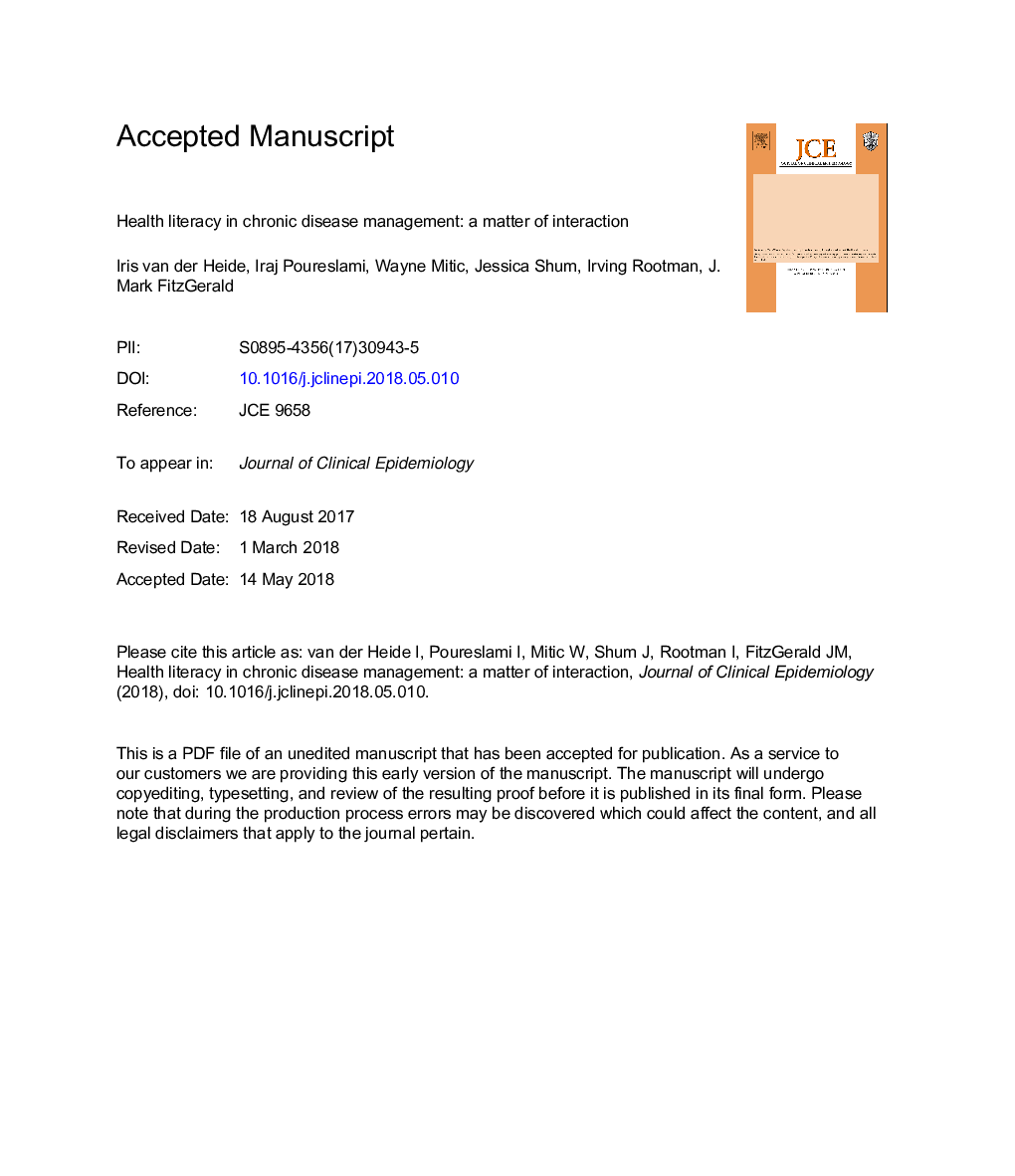| Article ID | Journal | Published Year | Pages | File Type |
|---|---|---|---|---|
| 9953276 | Journal of Clinical Epidemiology | 2018 | 17 Pages |
Abstract
Health literacy plays a crucial role in chronic disease management. To comprehensively manage chronic conditions on a daily basis, individuals must be able to assess, understand, evaluate, and use health information. Several key publications emphasize that health literacy is not merely a matter of individual skills but that it is highly dependent on the accessibility of health-care systems, the communication skills of health-care professionals, and the level of complexity of the health information. However, the literature indicates that health literacy is mainly framed and measured as an individual attribute in research. Focusing health literacy research solely on the individual, rather than also including the health-care context, limits our understanding of the type of actions that should be undertaken to facilitate a person's access to and understanding, evaluation and use of health information. This commentary highlights the importance of interpreting the concept of health literacy as a dynamic construct that emerges from the interaction between patients/citizens and health-care systems, organizations, and professionals. This approach has the potential to fill a gap in our understanding of the link between health literacy and chronic disease management. Such an understanding would facilitate the development of comprehensive health literacy measurement instruments and interventions to enhance health literacy.
Keywords
Related Topics
Health Sciences
Medicine and Dentistry
Public Health and Health Policy
Authors
Iris van der Heide, Iraj Poureslami, Wayne Mitic, Jessica Shum, Irving Rootman, J. Mark FitzGerald,
